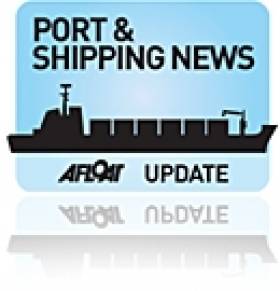Displaying items by tag: Twelve Quays Terminal
#FerryNews - Major works are to be carried out at an Irish Sea ferryport at the Wirral dock connecting Merseyside with Northern Ireland, as a scheme to accommodate bigger ferries is completed.
As the Wirral Globe reports, the works will involve a new fixed bridge built to connect the 12 Quays Ferry Terminal in Birkenhead with larger 'new generation' ships being introduced by Stena Line.
The port between East Float and the River Mersey is the only one connecting Liverpool with Belfast, and the plans will also see an upper deck extension to the existing pontoon – the platform from which cars board the ferries.
The new bridge will have two lanes, and is being built to accommodate the new ferries that will have two decks for vehicles and a capacity of 200.
The current ferries hold just 150 across a single deck, and are said to be 'reaching the end of their operational life.'
Two new 'roll on-roll off' ferries are currently under construction, and due to be in use from September next year.
To read more on the new ferryport infrastructure, click here.
Birkenhead Docks Upbeat On Future Growth
#PORTS – The operator of Birkenhead Docks at Twelve Quays Terminal, says it is confident it will recover the business it lost when DFDS Seaways closed down ferry operations last year, according to a report in today's Liverpool Daily Post.
Birkenhead Port, part of the Peel Group, says overall tonnage for the year to March stood at 3.2m tonnes – down 3% on the previous year. It said the fall was due to DFDS's decision to shut its Birkenhead-Dublin routes in January, 2011 (click HERE).
In accounts newly filed at Companies House, Birkenhead Port said business for the first ten months of the year had been strong. But it said that, in the final quarter, ongoing growth on its Belfast route was "more than offset by the loss of all Dublin volume".
It added: "While, in the short term, the loss of the DFDS business will adversely impact revenues and overall financial result, in the medium term the directors are confident that the company will recover this lost business as we look to contract with another operator at this flagship, purpose-built roll-on, roll-off facility."
It said that, with Stena Line axing its Fleetwood-Larne service, Birkenhead could attract more business to its Belfast route.

























































